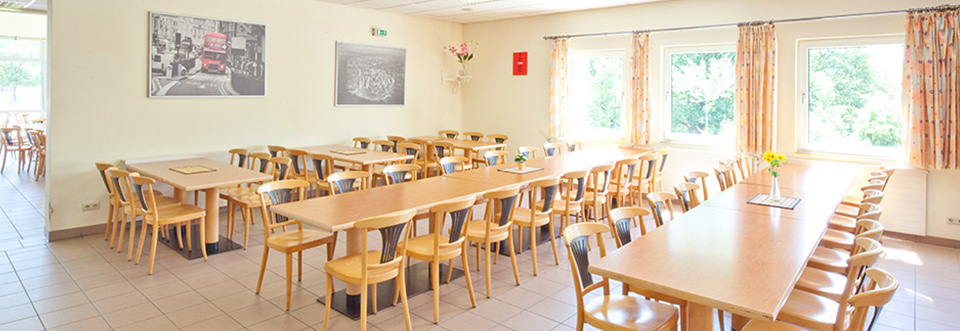
Regulation of the broadcast fee
Frequently Asked Questions (FAQs)
In order to make dealing with the new broadcast fee a little easier, we have compiled the most frequently asked questions:
1. How is the new contribution obligation regulated?
When the amended broadcasting law came into force on 1 January 2013, the previous broadcasting fees were replaced by a broadcast contribution — hence the Fee Collection Centre (GEZ in German) has also been renamed “Contribution service of ARD, ZDF and Deutschlandradio”.
Since January 2013, a flat-rate fee is charged for every flat. Every household pays € 17.98 per month, regardless of whether any equipment is available and used in the household. This corresponds to the previous maximum fee — that is, for those who have already registered a television set, nothing changes in principle. This means that all possible types of use are covered, including the use in vehicles.
The contribution must be paid for three months at a time.
2. Who has to pay?
The person liable to pay the contribution is the person who occupies the flat, i.e. every adult who actually lives there, regardless of their nationality. Since it is difficult to determine individual usage, in principle every tenant and everyone who is registered in the flat is considered to be the person occupying the flat.
If there are several people occupying the place — as in the case of a shared accommodation/residential group — they are all jointly and severally liable. This means that, in principle, each of the tenants can be held liable for payment and must pay the amount in full and on behalf of all of them; in this case, an obligation to compensate each other arises. In turn, this also means that: the more residents in a shared flat who are liable to pay contributions (= not exempt), the lower the amount that each individual has to pay proportionally.
It does not matter that each (co-)resident has his/her own tenancy agreement.
3. What is considered a “flat”?
As a rule, a flat in this sense is considered any structurally self-contained room unit that
- is suitable for or is used for living or sleeping and
- can be entered through its own entrance directly from a staircase, an anteroom or from the outside — i.e. not through another living space.
4. Why do student dormitories count as “flats”?
- Single flats are considered individual flats: Here, the tenant must pay € 17.98 per month (exception: BAföG recipients).
- Double flats and groups of tenants/shared accommodations may be recognised as one flat each — this means that only one flat occupant has to pay € 17.98 at a time.
- In the case of “corridor accommodations” (i.e. single rooms with floor kitchens and/or floor bathrooms as well as a floor access door), the situation is unfortunately not clear: presumably, the GEZ will try to designate each room as a fee-paying flat. We recommend that you only declare the respective floor as one flat for the time being.
5. How can one be exempt from the contribution obligation?
Those who receive social benefits can usually continue to be exempt from the obligation to pay. This applies, in particular, to “BAföG recipients” who no longer live with their parents.
The application for exemption must be submitted in writing to the competent state broadcasting institution; corresponding application forms are available online. The application must be accompanied by the original or a certified copy of the current BAföG decision. If you live in a shared flat, you must also provide the names of your flatmates.
Incidentally: those who do not receive BAföG benefits only because their income exceeds the respective requirement limit by less than € 17.98 can apply for an exemption from the contribution obligation as a special case of hardship; in this case, the notice of refusal must be submitted.
In the case of married couples and officially registered civil partnerships who live together in one flat — for example in a double flat — the BAföG exemption also applies to the other person; but: otherwise, for unmarried couples living together in a flat, the partner can be asked to “pay up” by the former GEZ.
All exemption and reduction options are listed under Section 4 of the State Broadcasting Contribution Treaty (RBStV in German).
5 a) Can I be exempt if my place of residence is only my secondary residence?
No, the fee is paid per flat and not per person.
5 b) Are foreign students exempt?
No, there are no special regulations for foreign students, not even for scholarship holders/students in exchange programmes (e.g. Erasmus).
6. How are contributors in shared accommodations decided?
The residents of shared flats who are liable to pay the contribution are so-called joint and several debtors. This means that the broadcasting contribution can only be requested once, but — indiscriminately and completely — from each resident. This person is then entitled to receive his or her share from the other flatmates.
It becomes more complicated if individual flatmates — for example, as recipients of BAföG benefits — are exempt from the contribution obligation; they cannot then be required to pay.
Example: A shared accommodation consisting of four adult students, one of whom is a BAföG recipient. One of the shared accommodation members is designated by the GEZ as a contributor and pays the full amount.
He/she can then demand € 6.00 (€ 17.98 / 3) from each of the other two shared accommodation members who are liable to pay contributions, the BAföG recipient — because he/she is exempt (see question 5) — is left out.
7. Can shared accommodations determine the contributor themselves?
The very essence of joint and several liability is that the creditor — in this case the respective state broadcasting corporation — can choose who they want to hold liable.
So, for example, the trick that a shared accommodation simply designates a “BAföG recipient” as the paying party and then he/she does not have to pay because he/she is exempt from contributions does not work either.
8. Can the landlord instead take over the broadcast contribution and pass it on to the tenants proportionally using the rent or operating costs?
No! This is not possible for the landlord under tenancy law. Incidentally, this would not help either, because the joint and several debt relationship still exists and the broadcasting corporations can choose a global occupant who is liable to pay the contribution and whom they want to hold liable.
9. How do the broadcasting corporations access the tenant data?
Through the registration authorities; they transmit the data of all persons of legal age to the respective competent state broadcasting corporation for the purpose of inventory and initial registration. These data include, among other things, name, date of birth, marital status, current and last address as well as the date of moving into the flat.
In addition, the flat occupants themselves have an obligation to provide information and a duty to notify the competent state broadcasting corporations (see question 11). Although a broadcasting corporation can also demand information about the tenant(s) from the landlord, this only applies if it can prove that it has no other possibility to determine the occupant of a flat.
10. What happens if I have already been a fee payer before?
It is assumed that everyone who currently pays the broadcasting fee will continue to pay the contribution in the future. The changeover to the broadcast contribution is therefore automatic as long as no other information is provided.
In cases where several contributors exist within a residential group (= 1 x contribution obligation), you should not rely on the GEZ contacting you to correct the situation; you will probably have to take action yourself.
11. What duty of disclosure do I have as a tenant?
Every flat occupant must register with the responsible state broadcasting corporation and inform them of any changes to their data; in shared accommodations this does not apply if another flatmate is already registered and is liable for the contribution. In addition, the respective state broadcasting corporation may demand comprehensive information from each person liable to pay contributions.
12. Can I “avoid” paying and what happens if I do not pay?
With the household fee, it is now very difficult for people to free ride and avoid paying. Whereas it used to be relatively easy to avoid paying the fee because the GEZ had to prove that you had broadcasting equipment that was subject to the fee, you now have to prove yourself that you do not even have the possibility to receive a broadcast — if you cannot do this, you must pay the contribution, unless you are exempt.
Attention! Deliberate or negligent failure to pay is considered an administrative offence and may be subject to a fine.
13. Can the broadcasting corporations demand entry to flats?
No, they have never been allowed to do so and will not be allowed to do so in the future! It is no longer necessary to enter flats, as the contribution is charged regardless of the number of devices or whether any actually exist.
14. Where can I get further information on this?
Further information can be found, for example, online at www.rundfunkbeitrag.de; there you can also obtain the application form for the exemption of the contribution obligation.







